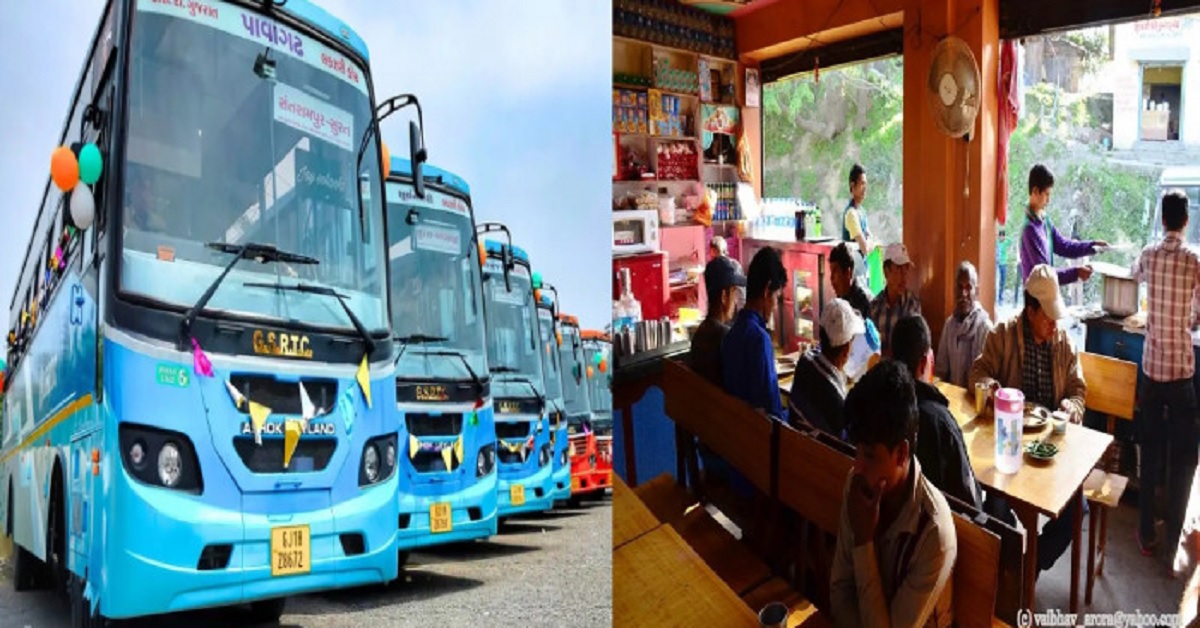The incident
The GSRTC conducted an investigation following complaints that several highway hotels, which had Hindu names, were actually run by Muslim proprietors. The licenses were then cancelled, citing reasons such as “misrepresentation” and “unhygienic conditions.” These establishments, located in key districts like Vadodara, Rajkot, Ahmedabad, and Bharuch, were integral stops for GSRTC buses, ensuring a steady flow of customers.
Hotels such as “Hotel Shivshakti” and “Hotel Tulsi” were specifically targeted because their names suggested Hindu ownership, a tactic allegedly used to attract a broader Hindu clientele. Critics, however, argue that the cancellations go beyond mere regulatory enforcement, aiming to marginalize Muslim businesses under the guise of addressing “public misconceptions.”
BIG NEWS 🚨 Gujarat BJP Govt cancels Bus halt license of 27 Muslim-owned hotels that were using Hindu names.
For example, All the owners and managers of Hotel Shivshakti on are Muslims.
Hotel Tulsi, located on the Surat-Ahmedabad route, is also owned by Muslims.
Permit of… pic.twitter.com/vrsOXV3ez2
— Times Algebra (@TimesAlgebraIND) January 24, 2025
Community backlash
The move has been perceived as part of a growing trend of policies aimed at alienating the Muslim community. Business owners argue that these measures undermine their rights to operate freely in a competitive market, with many pointing out the larger implications of such targeted actions. Muhammad Aslam, a hotel owner from Vadodara, stated, “This action isn’t just about our businesses; it’s an attack on our dignity and identity as Muslims.”
Local leaders and associations have also criticized the government’s approach, calling it a deliberate effort to widen communal divides. Zafar Alam, a community leader, expressed concerns about the divisive implications, emphasizing that such policies erode trust and harmony between communities.
Broader implications
The economic impact of this decision is substantial. By severing these businesses from GSRTC’s bus network, the government has significantly reduced their customer base. Hotel owners are now left grappling with potential financial ruin, particularly in a political climate already challenging for minority communities.
Moreover, the psychological toll on the Muslim community is palpable. Zahida Khan, a resident of Godhra, expressed the emotional strain of such actions: “It’s painful to see our community targeted like this. It’s as if we need to hide our identities to survive.”
A pattern of discrimination?
This incident is not an isolated case. Observers note parallels with similar actions in other states, such as Uttar Pradesh, where Muslim businesses were compelled to publicly display their religious identity. Critics argue that these measures reinforce harmful stereotypes and aim to exclude Muslims from public life under the pretense of regulation.
For instance, during the Kanwar Yatra in Uttar Pradesh, the state government issued directives requiring eateries along the route to display their owners’ names, sparking widespread backlash. Critics labeled the order “communal and divisive,” arguing that it targeted Muslim and Scheduled Caste businesses under the pretext of law and order. Senior advocate Abhishek Manu Singhvi called the directive “exclusion by identity,” highlighting its economic and social ramifications. The Supreme Court later paused the implementation of this order, questioning its statutory backing and purpose. Observers noted that this directive forced business owners to reveal their identities, exacerbating existing societal divides and reinforcing systemic biases.
Adding to the growing Islamophobic narrative, certain social media posts further amplify divisive rhetoric. For example, a post by a user named Mr. Sinha on X (formerly Twitter) perpetuates stereotypes and spreads harmful misinformation about Muslims, contributing to the broader atmosphere of hostility. Such posts play a significant role in normalizing discriminatory policies and attitudes
What did you notice?? pic.twitter.com/a9Cxxkpzsd
— Mr Sinha (@MrSinha_) January 24, 2025
It is pertinent to highlight that such actions run contrary to the principles enshrined in Article 15(1) of the Constitution of India, which unequivocally states: “The State shall not discriminate against any citizen on grounds only of religion, race, caste, sex, place of birth or any of them.”
The cancellation of licenses for Muslim-owned hotels in Gujarat reflects a concerning trend of discriminatory policies that undermine democratic principles of equality and fairness. By targeting businesses based on their owners’ religious identity, such actions deepen social divides and erode the pluralistic fabric of society. As the affected entrepreneurs face mounting challenges, the incident raises urgent questions about the future of minority rights and economic inclusion in India.
Related:
Gujarat: 108 shrines demolished in Gujarat
Report says 30 Muslim sports coaches and trainers fired without reason in Gujarat

